We’ve all heard of the Slow Food Movement but what about the Slow Living Movement? Living in a world where everything has sped up in an attempt to give us more… more money, more stuff, more connections and ironically more time it seems we have all been craving a return to slower and simpler days. The Slow Food Movement originated in Italy where cooking and eating (slowly and mindfully) has been given almost religious status, and this benefits us all in reconnecting to the simple joy of sharing our table with family and friends and enjoying one of the most basic and necessary human requirements. This movement has now been joined by the Slow Living Movement in attempt to give us back the simplicity and ease we have lost with all the convenience we have been given to have more faster. We all know slowing down can improve our welbeing, but what about slowing down the way we work and connect with others, can this improve our productivity and work life? I read an interesting article written by Brooke McAlary, an excerpt from her book Slow. It really resonated with me and my shifting focus over the years, I hope you can also glean some benefit from this nugget of wisdom in both your personal and professional life.
“We are overwhelmed by a relentless amount of information every day. We have blooming consumer debt. We have homes so large we can’t keep them maintained. We have breakfast and dinner in the car. We have weekends booked out for months in advance. We have forgotten what it is to have less. Less stuff. Less stress. Less expectation. Less to do. Less to be. Less to prove. We are hyper-connected and utterly disconnected at the same time. We engage with strangers on social media, but we don’t say hello to our neighbours.
Whenever I have the opportunity to talk face-to-face with people about creating a slower life of less, the response is almost always the same: their shoulders slump as they sigh, “Oh, that’s what I need.”
Usually that’s followed up with the question: “But how?”
What is slow living?
Over the past two years on The Slow Home Podcast, I’ve interviewed more than 100 people who all have different views on what it means to live a slower life. From tree changes to urban living, tiny homes to ethical consumption, self-sustainability to slow food – there is no one way of describing the external indicators of slow living because there is no one way to live a slower, simpler life.
Author and slow living advocate Erin Loechner told me that to her, slow living is a duality of caring more and caring less – that is, working out what’s worth caring more about, and letting go of the things that aren’t. Since embracing a slower, more mindful life, she cares more about being available for her friends and far less about dust bunnies. In other words, slow living doesn’t necessarily look like a certain type of house or a particular combination of colour-coordinated outfits, and it doesn’t need to involve baking bread or growing vegetables either. If you spend any time perusing #slowliving, however, you’d be forgiven for believing this is a lifestyle based almost solely on wearing washed-out neutral tones while walking through the woods, of timber floors and white walls and fashionably worn stovetops surrounded by beautifully aged chopping boards, artful lattes and crumpled bed sheets on rainy days.
“Erin Loechner told me slow living is a duality of caring more and caring less – that is, working out what’s worth caring more about, and letting go of the things that aren’t.”
But, really, I think Erin gets to the heart of it. Slow living is a curious mix of being prepared and being prepared to let go. Caring more and caring less. Saying yes and saying no. Being present and walking away. Doing the important things and forgetting those that aren’t. Grounded and free. Heavy and light. Organised and flexible. Complex and simple.
It’s about living in accordance with the important things in life. And more specifically, living in accordance with the important things in your life.
It’s about cultivating self-awareness, letting go of the excess stuff in our homes, learning how to live mindfully, getting in touch with our personal values, and choosing which advice applies to our circumstances, happily releasing the ideas that don’t fit our homes, families, jobs or values.
It’s about life. The living part, specifically. It’s about paying attention to it and spending time in the noticing. The hand-holding and the tear stains and the sunrises and the uncertainties. The love and the anger and the joy and the envy.
So while my book, Slow, opens by telling the Joneses where they can stick their version of a perfect life, it actually has very little to do with them and everything to do with you. Because your important stuff is almost certainly not the same as mine, or theirs.
This is not a quick fix. I’ve been making changes to my family’s life for over six years and we’re not there yet. Because there is no there. This isn’t a race with a start and a finish line. This is slow, imperfect, intentional and evolving.
So that’s why you’re here. That’s why I’m here. And I’m glad of it.
This is an edited extract from Slow by Brooke McAlary by Allen and Unwin.
If the above was of interest to you please comment, like or share.
Related Tag: Digital Marketing Sydney
